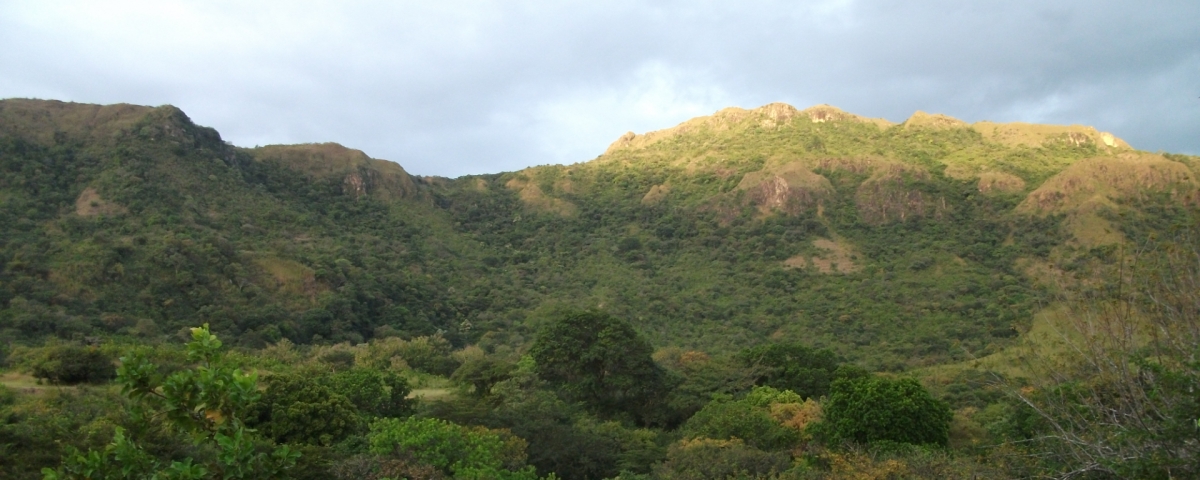This month, The Applied Ecologist is amplifying the voice of early career ecologists from around the world working in the field of applied ecology to help inspire the next generation. In this post, Abby Williams shares her story.
My background
I love spending as much time outdoors as I possibly can, whether that’s hiking, wild swimming, cycling or running. I’m also interested in local wildlife – I’ve been moth trapping for a few years and have recently taken up birdwatching.
Where I am now
I’m currently working as a Research Assistant at the Cambridge Center for Carbon Credits (4C). As part of my role, I’ve been focused on quantifying the carbon credits generated by tropical forest conservation projects. The majority of my work is computational – I help to develop code which uses remote sensing data to quantify deforestation in forest conservation projects. I have also had the opportunity to work with project developers within the Cambridge Conservation Initiative and further afield in other parts of the world. More recently, I’ve been thinking about how to communicate our research into a format that can be easily understood by non-experts. Carbon credits are a super new topic for me, but I’ve been learning a lot, and it’s been absolutely fascinating.
Why is this project important?
Carbon credits from tropical forest conservation projects are a really controversial topic at the moment due to issues around integrity and transparency. However, they have the potential to be an important source of funding for conservation, and a key tool for mitigating climate change. If we can work towards a system which accurately and openly quantifies the real climate benefit of forest conservation projects, we can restore trust in carbon credits so that carbon markets are fairer for buyers, and more importantly, the people who actually live in the forests being conserved. One of the main factors hindering this kind of progress is a lack of consensus about how we should go about quantifying the carbon benefit of forest conservation. I hope that in the future there can be a more open dialogue between scientists and other actors in the market so we can find solutions which are genuinely fairest for everyone involved. Carbon credits are such an interdisciplinary topic, spanning forest ecology, remote sensing, economics and policy, so finding these solutions is going to involve collaboration between people from a really wide range of backgrounds.
What has motivated you in your career?
I’m not one of those people who knew what they wanted to do from a young age – I only really got interested in biology when I was 17 or so. At that time, I was reading a lot of books about evolution, and just thought it was the most fascinating thing in the world. So, I guess I am motivated by a drive to understand how all these living things came about, and how best to protect them. I also had a fantastic experience at university where I was exposed to all kinds of research and had some really supportive mentors. I remember once, on a field course, hearing presentations from two early career researchers working on butterfly evolution and conservation, a topic I’m still really interested in. It was so inspiring to hear from people doing research in those fields – it showed me that I could do it, too!

What has your career/ECR journey been like? What have you enjoyed the most?
I’m still at a very early stage in my career and am still figuring things out! My background is very much in evolutionary biology – I finished my undergraduate degree last year, and after that I did a six-month internship studying butterflies at the Smithsonian Tropical Research Institute in Panama. I then had the opportunity to work at the Cambridge Center for Carbon Credits, which has given me a lot of insight about what it’s like to work in conservation. I’m really grateful to have worked on such diverse topics over the course of my career so far. From next year I’ll be moving on to start a PhD in bird evolution – a new study system for me, but one I’m really excited to explore.
One piece of advice for other ECRs…
I felt a lot of pressure coming out of my undergraduate degree to have everything figured out straight away. I knew I wanted to go into research, but doing a master’s didn’t feel like a viable option, so I remember feeling a bit stuck! But I’ve been lucky enough to have some really interesting opportunities which I couldn’t have predicted coming out of undergrad. I guess my advice would be to take your time exploring your options, keep an open mind, and to always have faith in your abilities!

Discover more posts from our ECR Journeys blog series here.


